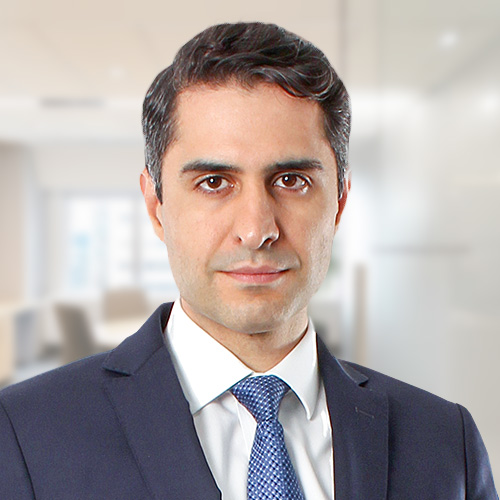Commentary
Indonesian pioneer
August 5, 2021
This commentary is the first in a series in which we will profile our holdings and share high-conviction ideas in the emerging markets universe. Among the 27 countries classified as emerging by MSCI, we see a mixed bag of opportunities and challenges. Some of the constituents are candidates for an upgrade (e.g., Taiwan and South Korea), whereas a few others are on their way to being downgraded (e.g., Argentina and Pakistan). Despite facing different dynamics, the EM Small Cap universe of over 11,000 companies presents plenty of very sound investment ideas.
Indonesia is one of the countries that we overweight in our portfolio. It is the world’s fourth-most populous country, with over 270 million people spread across 17,000 islands. Indonesia enjoys strong demographic tailwinds, ongoing market-friendly reforms, massive under-penetration of multiple sectors (e.g., healthcare, real estate, consumer, and finance), a solid fiscal position, with a low debt-to-GDP ratio (36.62% in 2020), a stable current account (deficit of 0.44% in 2020), low and stable inflation, and solid FX reserves. According to the World Bank, the Indonesian economy is expected to grow by 4.4% and 5.0% in 2021 and 2022, respectively, subject to the effectiveness of the COVID-19 pandemic containment efforts, including the vaccination programs.
In early July 2021, Indonesia emerged as the new epicenter of the COVID-19 pandemic, with daily cases and deaths surpassing the levels reported by Brazil and India.[1] The country’s healthcare system is facing a horrendous challenge. The majority of its hospitals are operating at abnormally high occupancy rates due to the delta variant, as only 7% of the eligible population has been vaccinated so far. As sad as it sounds, this level is still much higher than in many other developing countries. The most recent data show encouraging progress in the infection rate, which prompted the government to begin unwinding social mobility restriction measures after a three-week implementation. Declining bed occupancy rates in some regions shows promising signs that the healthcare system is normalizing.
Although we are pure bottom-up investors, we acknowledge secular growth opportunities in Indonesia’s healthcare sector. As of 2018, the country’s healthcare spending was one of the lowest in the world, at 2.87% of its GDP, compared to India (3.54%), Malaysia (3.76%), Thailand (3.79%), the Philippines (4.40%), Singapore (4.46%), China (5.35%), Vietnam (5.92%), South Korea (7.56%), and the United States (16.89%). Indonesia’s healthcare spending amounted to IDR 404 trillion in 2017 and is expected to reach IDR 1,224 trillion in 2027, growing at a CAGR of 11.7%. Indonesia ranks among the lowest in the region in terms of the number of hospital beds per 10,000 people (11 beds), compared to Malaysia (18), Singapore (26), and China (47). It also has the lowest number of doctors per 1,000 people among the Association of Southeast Asian Nations (ASEAN) countries.
Private players dominate the hospital industry. In 2017, there were 2,776 hospitals in Indonesia, comprised of 1,009 public and 1,767 private hospitals. Presently, there are seven major private players: Siloam International Hospitals, Mitra Keluarga Karyasehat, Sejahteraraya Anugrahjaya Group, Sarana Meditama Metropolitan, Awal Bros Hospital Group, Hermina Hospital Group, and Ciputra Development. The sector is expected to benefit from rising disposable income in Indonesia in the long term. However, Greater Jakarta and a few other of the most populous areas are already relatively well penetrated by hospitals. However, the population living in the most underpenetrated regions do not have similar purchasing power, implying that healthcare operators should accept a different kind of economics. Another challenge for them is the shortage of doctors in regional hospitals. Specialist doctors can only graduate from government medical colleges in Indonesia. As a result, the healthcare system welcomes only 700-800 graduates annually, with half of them going to public hospitals. A brand-new hospital needs 30 to 40 specialists. The ongoing universal healthcare reform also adds uncertainty. As a result, most hospital chains are reluctant to expand outside of population centers. Therefore, we believe there is a better way to capitalize on that massive opportunity.
One of our holdings offers the key to solving that issue. Prodia Widyahusada (PRDA IJ) is the pioneer in private independent clinical laboratories in Indonesia, with the most extensive network and largest market share. It was established in 1973 by a group of idealists with a background in the pharmacy business. Prodia’s unmatched track record, strong brand, and long-term relationships with healthcare industry stakeholders provide a sustainable source of referrals and scientific breakthroughs. The company is the only independent clinical lab with the College of American Pathologists accreditation in Indonesia, which is considered to be the highest certification in the clinical lab industry worldwide.
In 2020, Prodia performed approximately 14 million tests for 3.1 million patient visits. The company has a solid operational track record, with the number of visits and revenue per visit growing at a 5.4% and 2.8% CAGR over 2016-2020, respectively. It provides the most comprehensive range of clinical lab tests catering to the needs of a broad client base. Key types of routine tests include lipid profile, hematology kidney function, liver function, thyroid panel, glucose, HbA1c, urinalysis, coagulation testing, and endocrinology panel. Since its inception, the company has focused on innovation and introduced many clinical laboratory tests and technologies in Indonesia. The main types of non-routine tests include nutrition panel, trace element testing, vitamin D testing, autoimmune panel, molecular-genetic testing, and osteoporosis panel. Non-routine tests contributed 20% of total revenue in 2020, up from 16% in 2018. Genomic testing contributes 25% of non-routine tests revenue and grows at 30-40% annually. The price of Prodia’s new genomic sequencing tests’ range from IDR 7 to 10 million or 10 to 15 times the average revenue per visit. Benefiting from its pricing power, the company was able to raise prices by 5-10% annually from 2014 to 2020. Prodia’s fixed costs account for a high proportion of expenses, underscoring its operating leverage.
Prodia leverages a scalable hub-and-spoke business model, whereby specimens are collected across multiple locations for delivery to a local clinical laboratory or the Prodia Referral Lab Services for centralized clinical laboratory testing. This way, it can ensure superior quality and reliability, as well as economies of scale. The spokes facilitate deeper penetration within regions, strengthening the brand and driving higher volumes. The efficiency of a clinical laboratory improves with increasing test volumes, making automated tests less expensive and labs more cost-efficient. Outlet expansion generally requires light capital investments, as the testing equipment is provided by vendors free of charge, as long as Prodia purchases raw materials for testing from them. Moreover, specimen collection is made by qualified nurses and not doctors.
According to IQVIA, Indonesia’s private independent lab market was worth IDR 4.5 trillion in 2019 (20% of the total diagnostic market size). It grew at an 8.3% CAGR over from 2017 to 2019 (compared to 9.1% for Prodia). The non-routine test market is expected to grow at a 9.4% CAGR from 2018 to 2024. Prodia’s market share is 39.2% in 2019 (compared to 38.8% in 2018), larger than the following five players combined, at 33.9% (Kimia Farma, Pramita, Parahita, BioMedika, and Cito). Moreover, Prodia faces almost no competition in non-routine tests.
Its growth strategy is based on introducing new tests, including next-generation diagnostic technologies, and expanding the network via both physical and digital channels. Prodia is developing an omnichannel presence. The pace of new physical lab openings will likely slow due to the focus shift on digital services via Prodia Mobile. The app is a game changer, providing clients with many functionalities. They can book and pay for tests, choose the point of collection, track results, and share them with a specific clinic or hospital. The clients’ response has exceeded management’s expectations. In 2020, Prodia acquired 30% of new patients through its Mobile App, primarily millennials. Digital revenue accounted for 0.6-0.7% of total sales in 2020, growing by 67% year-over-year, while management expects it to expand by more than 100% in 2021. The company’s pace of growth is poised to accelerate on the back of rising disposable income and increasing awareness of preventive healthcare. Prodia demonstrates high profitability and cash-flow generation; it has a pristine balance sheet, with net cash accounting for 18% of its market capitalization.
The company is run by a professional and experienced management team with a strong track record in delivering superior growth and innovation. Andi Wijaya, the Chairman and co-founder, continues preaching relentless focus on innovation and service quality. A group of co-founders maintain 75% ownership of the company.
Prodia has a very strong ESG profile, which is well presented in its comprehensive sustainability report, published annually. The CEO and chairman roles are separated. Two out of five directors are independent. The company demonstrates substantial diversity, with two out of five female directors and four out of five female executives, including the CEO. Prodia has established green infrastructure to improve efficiency and conservation of energy and water resources. It manages the medical and non-medical waste in a responsible manner. In collaboration with Indo CorAlliance, Prodia carries out a coral reef revitalization program on Nusa Penida, Bali. The company is actively involved in other projects aimed towards improving the well-being of Indonesians. It funds scholarships and grants for researchers.
Low stock liquidity has been a well known concern for investors in this story. However, because of the quality growth profile of the company, we believe that multiples will expand given its consistent quality growth profile and attractive valuation relative to global peers.
The COVID-19 pandemic has multiple effects on Prodia. In the short term, non-essential test volumes are negatively impacted by the social restriction measures. At the same time, the pandemic drives new revenue streams, including PCR testing, pre-vaccination check-ups, participation in independent vaccination programs, post-vaccination antibody testing, and blood viscosity testing for COVID-19 survivors to detect blood clot risks. This demand might be sustainable even beyond 2022, as the world adapts to a new normal.
We believe that Prodia offers attractive exposure to the secular growth in an underpenetrated healthcare market, being an industry leader, leveraging its recognized brand and most extensive network, and led by an experienced management team with a strong track record in delivering consistent growth and innovations.
[1] https://www.nytimes.com/2021/07/17/world/asia/indonesia-covid.html







